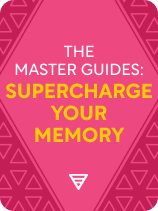

This article is an excerpt from the Shortform book guide to "The Master Guides: Supercharge Your Memory" by Shortform. Shortform has the world's best summaries and analyses of books you should be reading.
Like this article? Sign up for a free trial here.
How can you use retrieval practice strategies to improve your studying? Is active recall the best way to learn?
Retrieval practice strategies like creating flashcards and summarizing information force you to actively engage with the information you’re studying and remember things better. Knowing how to practice these techniques effectively can make a big difference in how well you perform.
Learn how to use active recall techniques to practice retrieving and strengthening memories.
Learning Retrieval Practice Strategies
Many people try to learn new information by rote memorization: repeating something until it sticks. However, rote learning is ineffective because you’re basically trying to bully your brain into accepting the information. In contrast, active learning—actively participating in the learning experience—is much more effective (and enjoyable!) than rote memorization.
Some experts have shown that rote memorization only commits the information you’re trying to memorize to your short-term memory, making it a waste of time in the long run. Instead, the most effective way to improve retention of new information is through retrieval practice strategies, which is any exercise that requires you to recall what you’ve learned using active recall techniques.
According to experts, active recall (or retrieval practice) can take a variety of forms, depending on what you’re studying: If you’re memorizing facts, try to recite them or write them down from memory—don’t just reread them in your textbook or from your notes. If you’re learning a problem-solving technique, work through a problem with it—don’t just read an example solution. If you’re learning a hands-on skill, practice doing the work—don’t just watch someone else do it.
There are two especially effective active recall techniques: Using flashcards and summarizing from memory.
1) Use Flashcards
The first retrieval practice strategy is using flashcards. But, flashcards are only effective when they force you to deeply engage with what you’re trying to memorize. One of the easiest ways to encourage this engagement is to create cards with a question on one side and an answer on the other—before flipping the card over, you must answer the question yourself. This will make studying with flashcards harder than simply flipping through your cards and rereading information.
Another retrieval practice strategy is to use as many symbols as possible on your cards in place of words and phrases. Using symbols rather than words requires you to recall more information than what’s explicitly written on the card. For example, imagine you want to remember that the Rashidun Caliphate was the first caliphate and lasted the shortest amount of time, the Umayyad was second and lasted longer than the Rashidun, and the Abbasid was the last and lasted the longest. You could write “Rashidun < Umayyad < Abbasid.”
Your flashcards should help you make connections with concepts you already know—Bowler explains that using images and symbols you’re familiar with is a great way to do this. For example, to remember the order of three of the major Medieval Islamic caliphates—the Rashidun, Umayyad, and Abbasid—you could draw a picture of a radish to remind you of “Rashidun,” a picture of your friend Maya to remind you of “Umayyad,” and the name of the band Abba to remind you of “Abbasid.”
Finally, the key to boosting learning with flashcards is to study them repeatedly over time. For example, if you have an exam in one month, rather than waiting until the week before the exam and studying for 30 minutes every day, make your flashcards and start studying as soon as you find out about the exam. Retrieval practice strategies work best over a longer period of time.
Experts have shown that spreading study sessions over extended periods promotes long-term retention. This is because it gives the synapse chains that represent what you’re learning time to grow and solidify in your mind.
2) Summarize From Memory
The second retrieval practice strategy is to summarize from memory. You can do this in one of three ways:
Take periodic recall breaks: During your review sessions, you should periodically look away from what you’re studying and try to remember what you just learned. This approach will help you internalize the concepts you’re trying to memorize. Additionally, it will give you real-time feedback on how well you’re absorbing new information.
Condense core ideas: You should first condense a concept into its most crucial components from memory alone. Then, compare what you’ve written to your full notes to see how well you understand the concept and identify anything that you forgot or misrepresented.
“Blurt” everything out: Another method is to write down every single thing you can remember about a concept. To do this, start by writing down a few words that will remind you of the concept. Then, use those prompts to jog your memory and write down everything you can remember about the concept. Once you’re done, compare your exercise to your notes and identify what you left out—these are likely the areas you need to work on.

———End of Preview———
Like what you just read? Read the rest of the world's best book summary and analysis of Shortform's "The Master Guides: Supercharge Your Memory" at Shortform.
Here's what you'll find in our full The Master Guides: Supercharge Your Memory summary:
- Memory retention methods from a diverse group of experts
- Three techniques for enhancing your note-taking abilities
- Three active learning strategies to help you solidify your long-term memory






